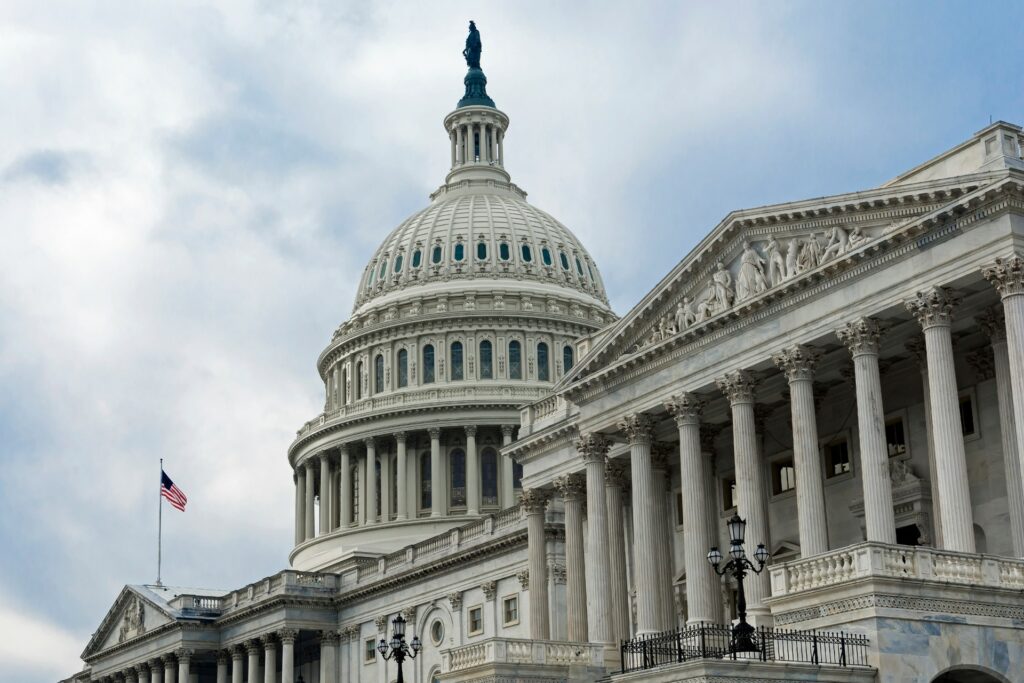Please note: Congress agreed to, and President Biden signed, a short-term spending bill on Sept. 30 that will keep the federal government funded until November 17. A shutdown is still possible after that date if no additional bill is passed.
Congress has failed to pass into law a budget for fiscal year 2024, which begins Oct. 1. As a result, the United States federal government could be headed for a shutdown.
As of Sept. 26, Congress has yet to pass any of the required spending bills to fund the federal government. Funding for the current fiscal year will expire on Sept. 30, 2023, forcing key agencies of the federal government to shutdown beginning at midnight on Oct. 1 if these bills are not passed and signed into law. Only “essential” government services will operate in the event of a federal shutdown.
Below is further information about how a federal shutdown impacts U.S. immigration agencies.
United States Citizenship and Immigration Services (USCIS)
United States Citizenship and Immigration Services (USCIS) is primarily funded through application fees. Therefore, the agency will remain open if a shutdown occurs.
During a shutdown, USCIS will continue to accept and adjudicate most applications. However, applications for programs which receive federal government funding will not be processed.
Those include:
- E-Verify
- Conrad 30 J-1 Waivers
- Special Immigrant Religious Worker Program
- Non-minister religious workers
The H-1B visa program could also be affected by the shutdown because of the Labor Condition Application (LCA), which relies on operations at the Department of Labor (DOL). Further information follows below.
Department of Labor (DOL)
The Department of Labor is not considered “essential,” nor is it primarily funded by application fees. Consequently, the DOL ceases operations during a government shutdown.
If shut down, the DOL will not process any petition type, including Permanent Labor Certifications (PERM) or Labor Condition Applications (LCA). The DOL’s Office of Foreign Labor Certification (OFLC) website as well as the Foreign Labor Application Gateway (FLAG) will also be disabled, meaning previously-approved applications cannot be accessed or downloaded.
The “OFLC is considering issuing guidance about flexibilities for employers with filing deadlines” if a shutdown occurs, according to the American Immigration Lawyers Association. The attorneys at Garfinkel Immigration Law Firm will alert applicable individuals if and when that information becomes available.
Department of State (DOS)
The Department of State is also primarily fee funded and will typically continue to process and issue visas and passports during a shutdown.
However, specific embassies and consulates may be impacted if they do not generate enough revenue from application fees to continue to operate during a shutdown. In that case, the specific embassy or consulate will significantly scale back operations.
Immigration and Customs Enforcement (ICE) and Customs and Border Protection (CBP)
Most aspects of Immigration and Customs Enforcement (ICE) and Customs and Border Protection (CBP) are considered “essential” and will continue to operate during a shutdown.
While most ports of entry will remain open, a shutdown could have some effect on any application filed at those locations. The Student and Exchange Visitor Program (SEVP) will also continue standard operations, as the organization is fee funded.
Other information to know about the government shutdown
The staff at Garfinkel Immigration Law Firm is working proactively to file as many petitions as possible before any potential federal government shutdown occurs. The Firm will then continue to prepare impacted applications in order to ensure they are ready for filing as soon as the applicable agency resumes normal operations.
Garfinkel Immigration Law Firms continues to monitor the situation closely and will alert clients as circumstances develop and evolve.
This story was updated on Oct. 6, 2023.

